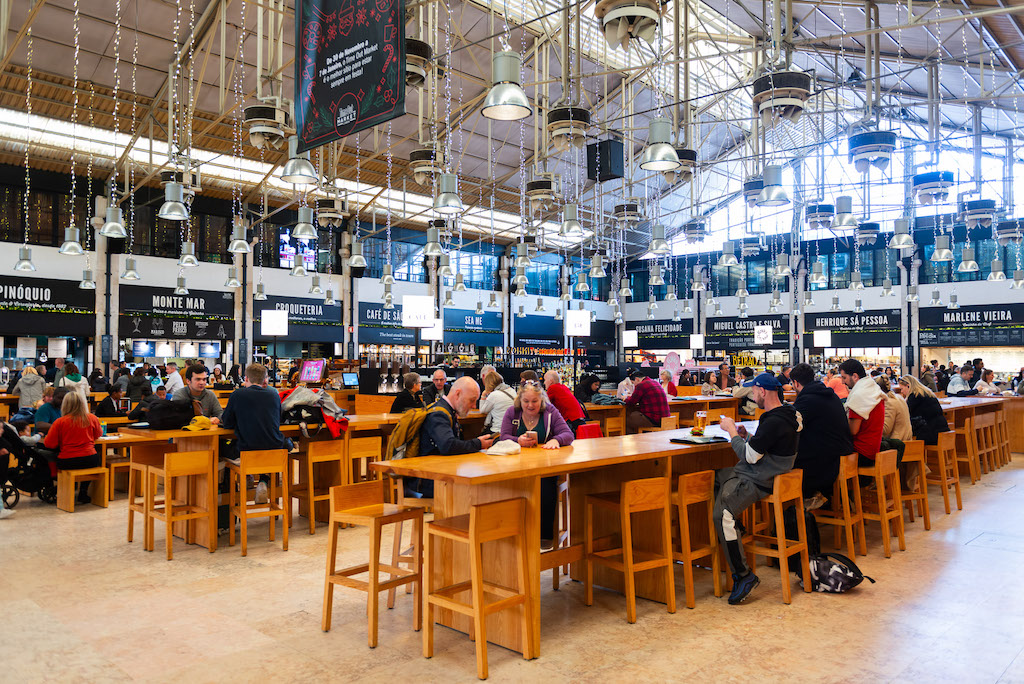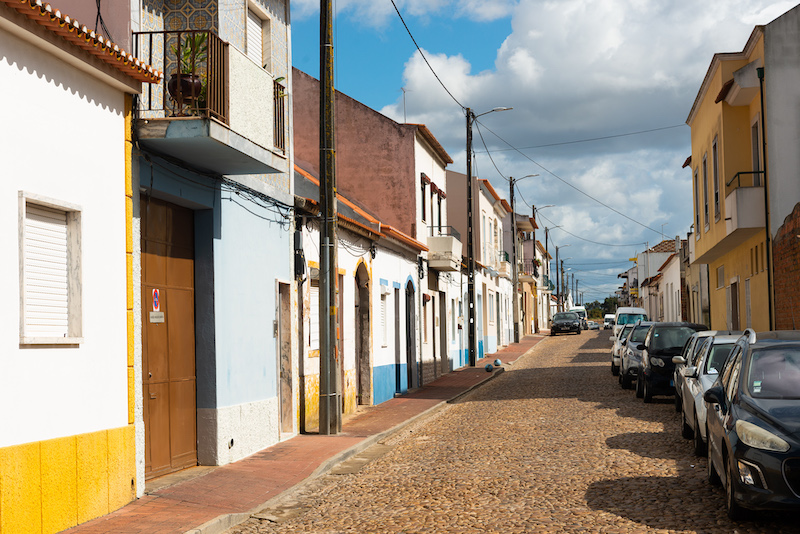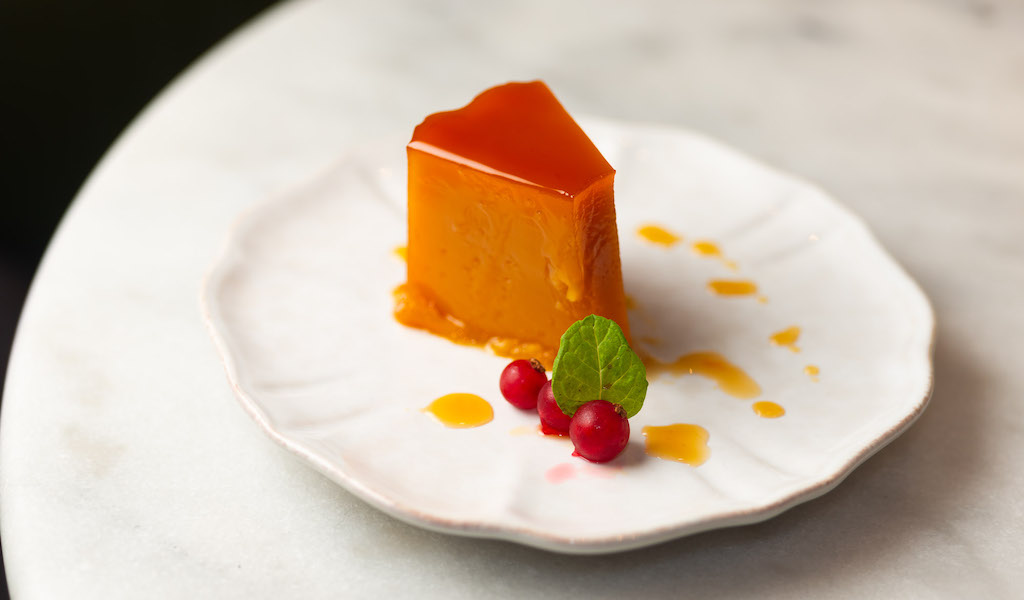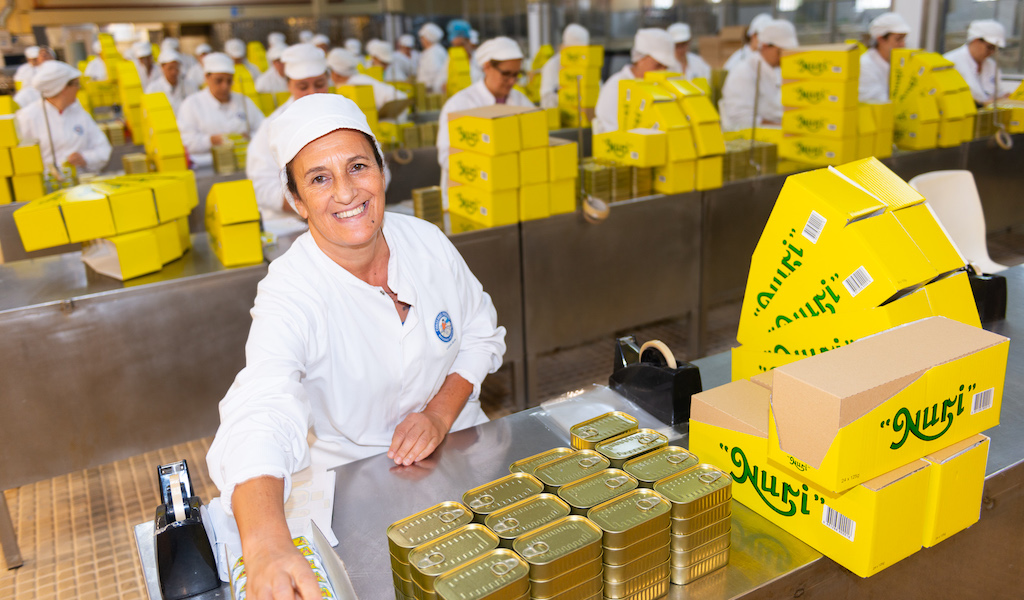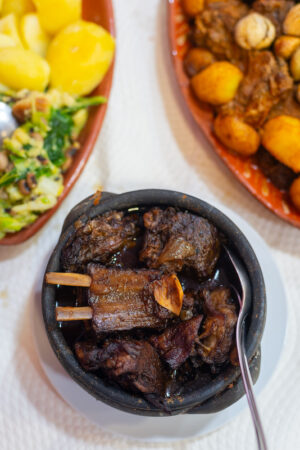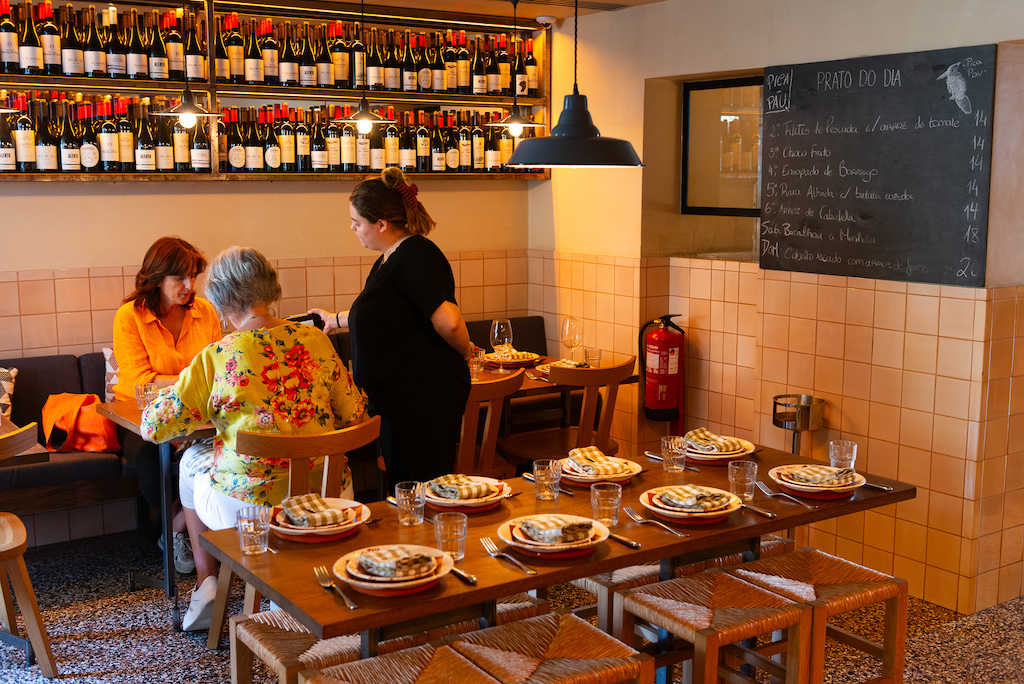We can't find the internet
Attempting to reconnect
Something went wrong!
Hang in there while we get back on track
Search results for "Austin Bush"
Lisbon
Market Watch: Revisiting the Time Out Effect
It’s not an exaggeration to say that Lisbon’s fresh markets are disappearing. The Greater Lisbon area is home to 28 market spaces, yet only ten of these witness any significant commercial activity. As the city’s shoppers increasingly shift to supermarkets, its traditional markets have had to find new ways to remain relevant. In an effort to do this, some Lisbon markets have opted to transform part of their spaces into food courts – a phenomenon sometimes called the “Time Out effect,” after the high-profile market of the same name. It’s been a decade since the first of these relaunches, so we decided to visit the three Lisbon markets that have adopted it. What we witnessed showed a model that in one case seems to benefit both the traditional market and food court sides alike, while in the other cases, appears more lopsided.
Read moreLisbon
CB on the Road: Stone Soup in Almeirim
It’s an early example of guilt tripping. The story goes that a monk arrived in a Portuguese village, hungry and clever. He grabbed a rock and carried it door to door, claiming that it was his only ingredient, asking people if they would be kind enough to supplement it so he could make a meal. Tugging on heartstrings in this manner, he was able to accumulate a pot, a potato, some beans, a bit of sausage and some salt-preserved pork and seasonings – a hodgepodge of ingredients that, along with that crucial stone, he united as soup. Thus, goes the story, sopa de pedra, “stone soup,” was born. Hélia Costa, a restaurateur in Almeirim, an hour north of Lisbon, tells a much more practical origin story for the dish’s unique name.
Read moreLisbon
Atelier Pudim Rei: Dessert King
“It’s the king of Portuguese gastronomy,” declares Miguel Oliveira. He’s describing pudim Abade de Priscos, one of Portugal’s most infamous desserts, and the dish that is the specialty of his Lisbon sweets shop. Allegedly invented by the eponymous abbot in the 19th century (pudim is a term that refers to a variety of steamed desserts in Portugal), the dish unites a staggering 15 egg yolks, sugar, pork fat, port wine and aromatics in the form of a gleaming, golden ring. It’s easily the most over-the-top dessert in a country of already over-the-top desserts, and is the dish that has captivated Miguel more than any other.
Read moreBangkok
Kuaytiaw Khua Kai: Bangkok's Best Fried Wide Noodles
Kuaytiaw khua kai, wide rice noodles fried in a wok with marinated chicken, preserved squid, and eggs, is a dish with undeniably Chinese elements, but is quite possibly one that was invented in Thailand – most likely in Bangkok’s Chinatown. In and around the Phlap Phla Chai Intersection, no fewer than five restaurants and stalls serve the dish, but our favorite is without a doubt Suan Mali Chicken Noodle. The vendors here fry the dish the old-school way, over coals, in lard, finishing by flipping the knot of noodles flapjack-style, resulting in a dish with ample singed bits and a whiff of smoke.
Read morePorto
Conservas Pinhais: Tenacious Tinned Fish
Matosinhos, it could be said, has seen better times. In its heyday, the semi-industrial-feeling port city just north of Porto was once home to 54 fish canneries. Today, only two remain. Along the city’s wide, empty-feeling streets, some of the city’s former factories and their graceful Art Nouveau facades have been reappropriated as other businesses – we saw more than one startup – while in many cases, they have simply been abandoned. But at Pinhais, one of those remaining canneries, it feels like little has changed. As it’s done since 1920, having weathered both good and bad times in Matosinhos, the company is producing some of the best tinned seafood in Portugal. Before World War II, there were 152 fish canneries in Portugal. But in the 1960s, advances in refrigeration led to a crash in tinned seafood production (for more on the history of Iberian tinned seafood, see our previous article about conservas in Galicia, Spain).
Read morePorto
On the Road: Central Portugal’s Rocky Aldeias do Xisto
“It’s not enough,” says the waiter at O Pascoal. We had inquired if one dish would be sufficient for three people, and his reply is immediate, firm and confident. We take his advice, order another, and the two dishes are easily enough for six people (we are three). We are in Fajão, an aldeia do xisto, “schist village,” in inland, central Portugal’s Beira region – about a two-and-a-half hours’ drive from Porto, or around three hours from Lisbon – and this interaction is the perfect introduction to the almost comically hearty cuisine of this area.
Read moreLisbon
Pica-Pau: For the Love of Lisbon
Your friends or family are visiting Lisbon for the first time. Where do you take them to eat? If you’re us, it’s a no-brainer: Pica-Pau. Open for less than a year now, the restaurant, for us at least, has become a go-to introduction to the dishes, ingredients and flavors of Portugal. Or, more accurately, the dishes, ingredients and flavors of Lisbon. “Lisbon is a culinary region, just like Trás-os-Montes or Alentejo,” says Luís Gaspar, referring to Portugal’s far north and south, both regions with distinct, recognizable culinary legacies. He’s the chef behind Pica-Pau, and collaborated with the restaurant group Plateform to create a venue that centers around the sometimes-neglected cuisine of Lisbon.
Read more